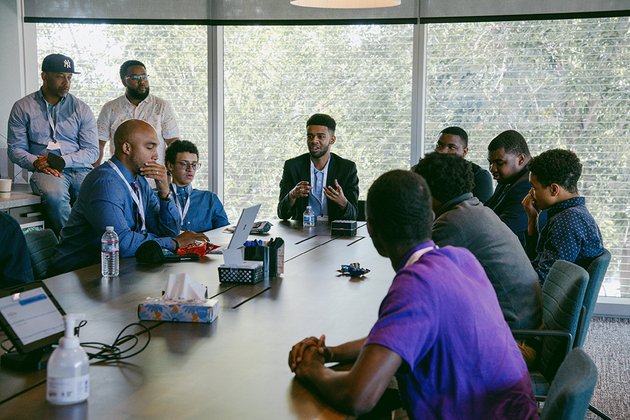
Google’s investment of $3 million over three years will complement baseline funding from the National Science Foundation (NSF) and allow ECEP to build additional backbone capacity for supporting Alliance members and activities.
Read this story at ECEP News
The Expanding Computing Education Pathways Alliance (ECEP) is pleased to announce a new partnership with Google to support ECEP’s broadening participation in computing mission across the country.
Google’s investment of $3 million over three years will complement baseline funding from the National Science Foundation (NSF) and allow ECEP to build additional backbone capacity for supporting Alliance members and activities.
Key features of this initiative will include increased capacity for:
Investing in systemic change is vital to successfully diversifying the entire CS education and workforce pipeline, according to Dr. Carol Fletcher, who serves as Principal Investigator for the ECEP Alliance at The University of Texas at Austin’s Texas Advanced Computing Center (TACC).
“Both government and industry have made notable investments over the past decade in supporting individual students in K-12 and higher education who represent groups who have been historically excluded from CS learning opportunities,” Fletcher said.”
“But we’ve failed to adequately address the structural and systemic barriers that continue to marginalize young women, Black and Brown students, students with disabilities, and many others who could be successful in computer science and computing-related fields if given the chance. This is the work that ECEP state leaders are engaged in and Google’s investment will be a significant step toward scaling up that work on the national level.”
The ECEP Alliance, first funded by NSF in 2012 as a partnership between Georgia and Massachusetts, has grown to officially include 22 states and the territory of Puerto Rico.However, many more states have expressed interest in formally joining the Alliance.
According to Sarah Dunton, ECEP Co-PI and Alliance Director, Google’s support for ECEP will allow the Alliance to extend its reach even further.
“For 10 years ECEP has met the needs of not only ECEP state teams, but teams in any state seeking to advance K-12 computing through education policy reform,” Dunton said. “Google’s investment will help more state leaders access ECEP’s model for state change as we grow our leadership team and expand our library of resources specific to building equitable CS pathways.”
While headquartered at TACC and UT Austin, ECEP’s core leadership team members include Dr. Joshua Childs at UT Austin’s College of Education, Sarah T. Dunton at the Massachusetts High Performance Computing Center (MGHPCC), Dr. Anne Leftwich at Indiana University, and Dr. Debra Richardson at The University of California, Irvine.
In addition, ECEP partners with numerous other organizations across the country such as CSforAll, the Computer Science Teachers Association, SageFox, Kapor Center, and Code.org to support systemic change, inclusive instructional strategies, and more robust data systems for tracking equitable capacity for, access to, participation in, and experiences of CS education in K-12.
To learn more about ECEP’s work nationally and at a state level, please visit ecepalliance.org.